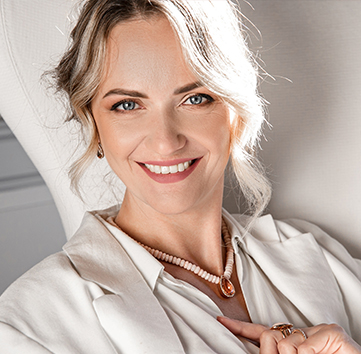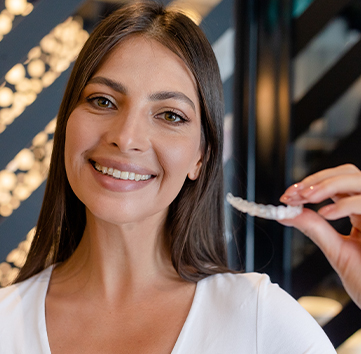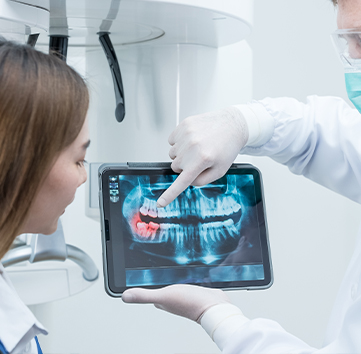Could they become reality?
An article featured in The Independent recently reported on an entire dental procedure completed by robots in China.
3D teeth were printed and then fully implanted by robots in a successful procedure designed by Beihang University, although dentists were present to supervise throughout.
The robots operated using pre-programmed movements but were able to still adjust if the woman being operated on moved.
The technology is being designed for several reasons. Primarily the focus is to wipe out the room for human error, which can happen even with the most qualified dentists. In China, precision dentistry is even more valuable as there are a lot of underqualified (or completely unqualified) people providing services to patients that they really shouldn’t be, so the errors are a lot more prevalent. Additionally, there is a real shortage of dentists and dental services in China overall, so technology to fill that gap would be invaluable.
So, could robot dentists soon be a reality in the UK?
Realistically in this lifetime? Probably not. The technology is extremely new and there are plenty of roadblocks ahead including the cost of the products, and finding a place for them in a society that largely appreciates the human dentistry currently available. In other countries where human dentists are lacking the gap is much larger, but in the UK, we have phenomenal dentistry available both privately and on the NHS so, there isn’t so much a call for that kind of service at this time.
That doesn’t mean that technology doesn’t have a place within modern dentistry in the UK though…
3D Printing, Dental Technology And Dentistry
The 3D dental market is set to be worth around $10 billion dollars or more within the next few years. The technology largely revolves around the ability to create precision dental devices or restorations without the need for excess human labour, which pushes the time and costs up hugely. Dental implant technology, crowns, inlays, onlays, dentures and bridges can all benefit from advances in technology.
Fitting technology is also incredibly useful in providing precise scanning of the area being restored, enabling the dentist to have the most accurately fitted device made. For example; with teeth straightening we can create digital images showing the entire projected straightening journey with a specific device, showing the patient exactly how their teeth will look at the end of treatment.
Let’s not forget diagnostics and their place in dentistry. CT scanning and scanning technology enables us to be incredibly precise with diagnosing dental issues and treating them.
Accessible Dental Technology Available Right Now
Most treatments provided to you by the dentist involve advanced technology that is constantly being developed to provide the best possible oral care. Restorative and cosmetic dentistry has moved on hugely over the last decade, which is why treatments like dental implants are now the ‘gold standard’ in replacing missing teeth. That kind of technology was previously off-limits to most, but with a lot of hard work, studies and advances in the tools used, now you can have incredible smile restorations that look, function and feel close to natural teeth.
To simplify your access to dental technology, a simple checkup at the dentist is much more streamlined than it used to be. The tools we used to diagnose are efficient, and if you do require simple procedures completing like a filling, we have the most comfortable injections available to deliver local anaesthetic. We also have the best possible dental tools to perform the treatment too.
Even more accessible are the electric toothbrushes available for you to use. Earliest electric toothbrushes would only vibrate, whereas now they rotate, oscillate and often combine all movements to give you the best possible ability to clean your teeth effectively.
Dental technology might not yet have reached ‘robot’ stage, but it is advancing all the time in lots of different ways, enabling patients to have the best possible mouth care available at this time.
You Still Have The Most Control Over Your Personal Oral Care
Regardless of the technology advances worldwide, it is important to remember that it is down to you, how healthy your smile is. So many issues are preventable with the right oral care regime.
Brushing
Brushing your teeth twice a day for two minutes means you are making a conscious effort to remove the plaque from your teeth. That plaque, if left to build, will start to cause tooth decay and gum irritation which could lead to gum disease. Using the right brush is also important. It doesn’t have to be the latest all singing and dancing electric brush, but it does need to be the right strength brush for your needs. Too soft and you might find it isn’t removing the plaque properly. Too hard and you might find you get sore gums and gum recession.
Lifestyle
The lifestyle that you lead cannot be improved by a great brushing regime. If you smoke heavily, or drink excessively, your oral health will suffer. If you eat lots of sugar, starchy foods or acidic foods, then your oral health will suffer. Your lifestyle has a huge impact on your oral health and you have a lot of control over the lifestyle factors that can cause harm.
You’re Still In The Best Position To Improve Your Oral Health
Technology is incredible and here at your Maidstone and Chatham dentists we are so grateful for the advances in technology that enable our industry to continue to provide incredible dental treatments and support to our valued patients.
We do want to remind you though that you are still in the best possible position to improve your oral health. With changes to your oral health regime and lifestyle, regular visits to your local dentist and perhaps some tips and guidance from our hygienist, you can maintain a healthy and happy smile long-term.
















